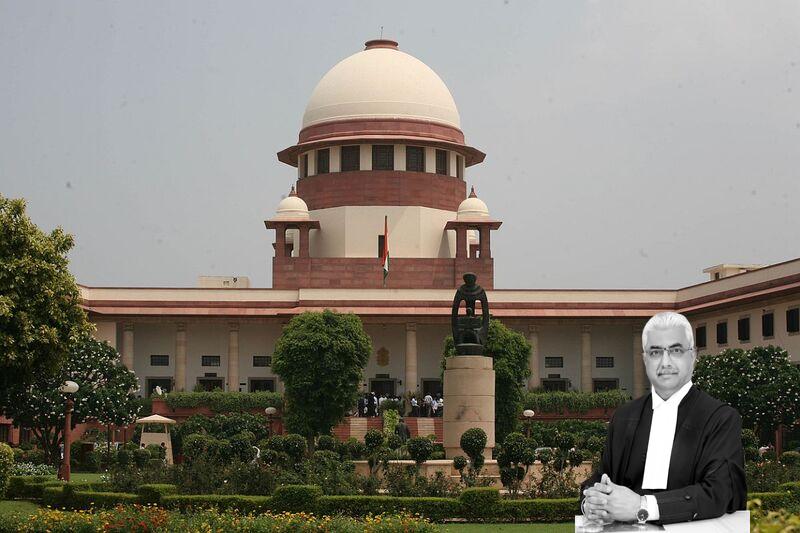Talwinder Singh intended to sell their shares in office unit No.306 on the third floor in the aforesaid commercial complex allotted to them by the respondent, appellants agreed to purchase the same and accordingly made payment of entire agreed amount to their vendors. This unilateral change was objected to by the appellants and in response to the same, the respondent threatened to forfeit the amount paid till date and also to cancel the allotment of the office space. As per the payment schedule forwarded by the respondent to the appellants, a sum of Rs.2,47,148/- was due and payable to the respondent by the appellants within 30 days from the date of possession notice, which was not issued. The Commission by impugned order dated 11.05.2015, dismissed the complaint in limine on the ground of maintainability holding that appellants are not ‘consumers’ as defined under Section 2(1) (d) of the Act as appellants were already carrying on business for the purposes of their livelihood and therefore, it cannot be said that the property which was the subject matter of the complaint before the Commission was being purchased by them exclusively for the purposes of earning livelihood by way of self-employment. It is the contention of the learned counsel appearing for the appellants that the Commission had erred in not appreciating the fact of appellants having booked the commercial space only for the purpose of earning livelihood by way of self- employment and not for the purposes of reselling or making profit due to escalation of price as pleaded in the complaint ; in the statement that came to be recorded by the Commission, nowhere it has been stated by the appellants that commercial space booked by them was for the purpose of making profit and mere running of a dealership business of Reliance Industries and engaging themselves in business of investment in property, perse would not indicate or suggest that appellants intended to sell the same ; the appellants though had approached the respondent for delivery of possession of the commercial space allotted to them, till date it was not delivered and silence on the part of the respondent had caused mental agony, frustration and depression to the appellants ; the unilateral change of the office unit from Third floor to Eighth floor without consent of the appellants and forwarding a unilateral agreement and forcing the appellants to sign the same, by receiving all payments would tantamount to deceptive practice and falls within the meaning of ‘unfair trade practice’ as defined under the Consumer Protection Act Atul Sharma, Mr.
He would elaborate his submissions by contending that appellants are already engaged in the business and the Act would exclude those persons who avail services for commercial purposes and the office space was not purchased by the appellants exclusively for the purpose of earning livelihood ; the complaint does not disclose any cause of action and it also ought to have been dismissed for suppression of fact namely the appellants defaulting in the payments. In this background it would be necessary to note Section 2(1)(d) of the Act and it reads as under: “consumer” means any person who,— (i) buys any goods for a consideration which has been paid or promised or partly paid and partly promised, or under any system of deferred payment and includes any user of such goods other than the person who buys such goods for consideration paid or promised or partly paid or partly promised, or under any system of deferred payment, when such use is made with the approval of such person, but does not include a person who obtains such goods for resale or for any commercial purpose; or (ii) 12 [hires or avails of] any services for a consideration which has been paid or promised or partly paid and partly promised, or under any system of deferred payment and includes any beneficiary of such services other than the person who 12 [hires or avails of] the services for consideration paid or promised, or partly paid and partly promised, or under any system of deferred payment, when such services are availed of with the approval of the first mentioned person 13 [but does not include a person who avails of such services for any commercial purpose]; (Emphasis reported in 1990 SCC OnLine NCDRC 3 : (1991) 1 CPJ 499 and approved by this Court in Lilavati Kirtilal Mehta Medical Trust v. A review of the provisions of the Act discloses that the quasi-judicial bodies/authorities/agencies created by the Act known as District Forums, State Commissions and the National Commission are not courts though invested with some of the powers of a civil court. The idea was to provide an additional forum providing inexpensive and speedy resolution of disputes arising between consumers and suppliers of goods and services. Where a large number of consumers have a similar complaint, one or more can file a complaint on behalf of all.
No coming back to the definition of the expression ‘consumer’ in Section 2(d), a consumer means insofar as is relevant for the purpose of this appeal, (i) a person who buys any goods for consideration; it is immaterial whether the consideration is paid or promised, or partly paid and partly promised, or whether the payment of consideration is deferred; (ii) a person who uses such goods with the approval of the person who buys such goods for consideration; (iii) but does not include a person who buys such goods for resale or for any commercial purpose. Broadly affirming the said view and more particularly with a view to obviate any confusion — the expression “large scale” is not a very precise expression — Parliament stepped in and added the explanation to Section 2(d)(i) by Ordinance/Amendment Act, 1993. If the commercial use is by the purchaser himself for the purpose of earning his livelihood by means of self-employment, such purchaser of goods is yet a ‘consumer’. The several words employed in the explanation, viz., “uses them by himself”, “exclusively for the purpose of earning his livelihood” and “by means of self- employment” make the intention of Parliament abundantly clear, that the goods bought must be used by the buyer himself, by employing himself for earning his livelihood. Gupta [(1994) 1 SCC 243] the question was whether a public authority engaged in constructing and selling houses can be said to be rendering a ‘service’ and whether the person purchasing such houses can be called a ‘consumer’ within the meaning of the said definition. 251-54, paras 2 and 3) “To begin with the preamble of the Act, which can afford useful assistance to ascertain the legislative intention, it was enacted, ‘to provide for the protection of the interest of consumers’. It reads as under: ‘ “consumer” means any person who,— (i) buys any goods for a consideration which has been paid or promised or partly paid and partly promised, or under any system of deferred payment and includes any user of such goods other than the person who buys such goods for consideration paid or promised or partly paid or partly promised, or under any system of deferred payment when such use is made with the approval of such person, but does not include a person who obtains such goods for resale or for any commercial purpose; or (ii) hires or avails of any services for a consideration which has been paid or promised or partly paid and partly promised, or under any system of deferred payment and includes any beneficiary of such services other than the person who hires or avails of the services for consideration paid or promised, or partly paid and partly promised, or under any system of deferred payment, when such services are availed of with the approval of the first mentioned person; Explanation.— For the purposes of sub- clause (i), “commercial purpose” does not include use by a consumer of goods bought and used by him exclusively for the purpose of earning his livelihood, by means of self- employment;’ It For instance, it is not only purchaser of goods or hirer of services but even those who use the goods or who are beneficiaries of services with approval of the person who purchased the goods or who hired services are included in it. A plain reading of the expression “consumer” indicates that any person who buys any goods for consideration which has been paid or promised or partly paid and partly promised under any system of deferred payment and includes any user of such goods other than the person who buy such goods. Going by the plain dictionary meaning of the words used in the definition section the intention of Parliament must be understood to be to exclude from the scope of the expression “consumer” any person who buys goods for the purpose of their being used in any activity engaged on a large scale for the purpose of making profit.
The intention of the Parliament as can be gathered from the definition section is to deny the benefits of the Act to persons purchasing goods either for purpose of resale or for the purpose of being used in profit making activity engaged on a large scale. 18.06.1993) excludes certain purposes from the purview of the expression ‘commercial purpose’- a case of explanation to an exception to amplify this definition by way of an illustration would certainly clear the clouds surrounding such interpretation. On the other hand, if the answer is in the negative, namely if such person purchases the goods or services is not for any commercial purpose and for one’s own use, it cannot be gainsaid even in such circumstances the transaction would be for a commercial purpose attributing profit motive and thereby excluding such person from the definition of ‘ consumer’.
No turning our attention to the facts on hand, namely, perusal of the complaint filed before the Commission would indicate that appellants have specifically pleaded that they were in search of office space “for their self-employment and to run their business and earn their livelihood”. The statement of the appellant was that he engaged in the business of investment/dealing in property would not ipso facto suggest or indicate the property proposed to be purchased from the respondent was for commercial purpose. It is in this background the averment made in paragraph 6 of their complaint filed before the Commission would acquire significance and the relevant averment has been noticed hereinabove and at the cost of repetition when perused it would clearly indicate that when the appellants were in search of office space “ for their self-employment and to run their business and earn their livelihood ” they had entered into an agreement to purchase the same from the original allotees. Though, a faint attempt has been made by the appellants to contend that there was unilateral change namely the respondent had agreed to sell the office space 306 at third floor to office space No.814 in 8 floor, we are not inclined to entertain the said plea in as much as the agreement has been duly signed by the appellants and in token of having accepted the same they have affixed their signatures to the said agreement and it is too late in the day for the appellants to retrace their steps on this issue. The statement of account dated 28.01.2014 forwarded to the appellants by the respondent would indicate the receipt of payment of Rs.51,10,117/- by the respondent.
It is not in dispute that in all the respondent has received a sum of Rs.51,10,117/- which is also admitted by the respondent in its counter affidavit but contending that instalments which was due and payable had not been remitted on time and as such interest is payable on the delayed payments. Hence, to balance the equities, it would be appropriate to direct the respondent to refund the amount it has received from appellants with interest calculated @ 12% per annum which would not only meet the ends of justice but would also offset the interest loss if at all, if any caused to the respondent on account of delayed payments of the instalments by the appellants and keeping in mind the appreciated value of the asset namely office premises which was proposed to be sold by the respondent to the appellant. one lakh.



